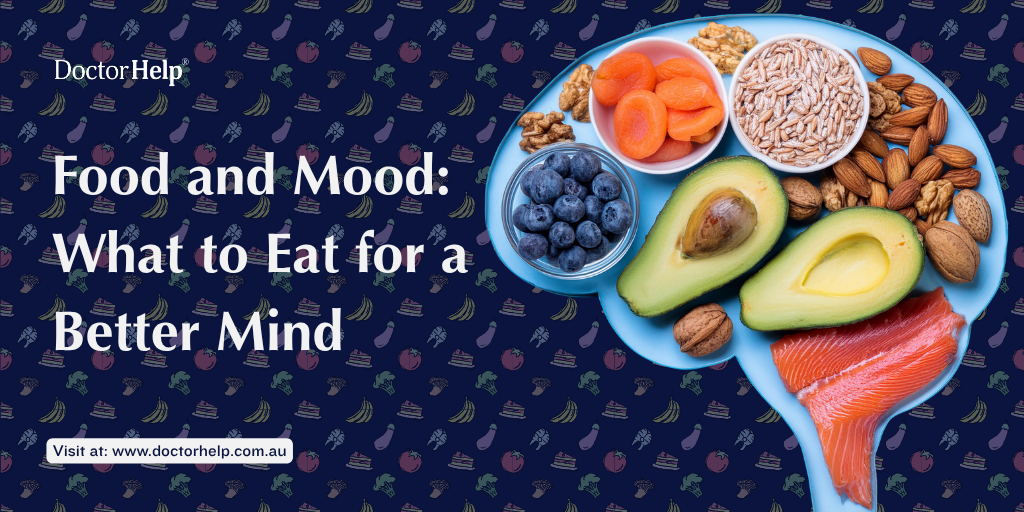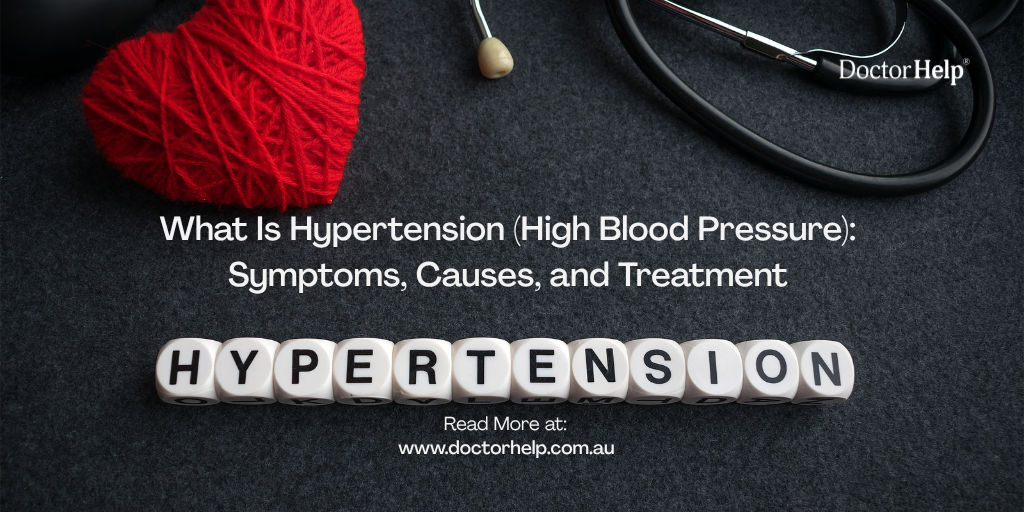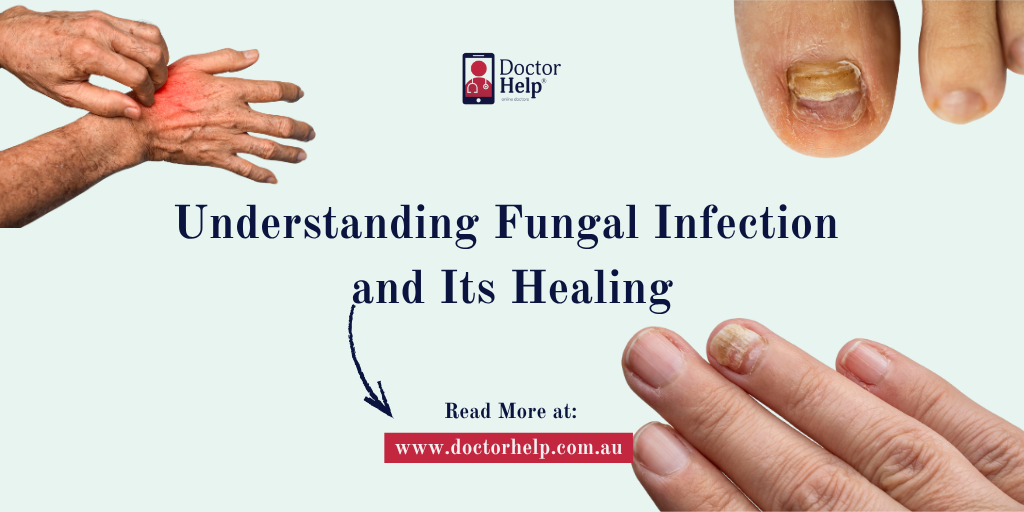Table of Contents
We’ve all had those kinds of days, haven’t we? The ones in which a warm bowl of soup becomes a hug, or a crunchy salad leaves you somewhat lighter, brighter. It’s not just in your head. The bond between food and mood runs deeper than comfort food nostalgia – it’s rooted in biology, and increasingly, in science.
In Australia, where one in every five of us develops a mental health issue every year, as the Australian Institute of Health and Welfare reveals, we are starting to discover a new reality: what we put into our mouths is central to how we feel. This is not a trending health thing you heard at a cool coffee shop, this is real, this is personal, and it’s backed by growing evidence from institutions like the Food and Mood Centre at Deakin University and the National Health and Medical Research Council
This story isn’t about guilt or perfection. It’s about power, the quiet kind that begins with the next bite.
The Food and Mood Connection
Picture your gut as a busy train station, sending signals all day to the brain. This route, called the gut-brain axis, plays host to a fascinating interaction between food, bacteria, and neurotransmitters. The hormone which is commonly related to happiness called serotonin is mainly produced in the intestine. By nourishing your body you are telling your mind, you are safe, you are supported, you are nourished.
So when we ask how food affects your mood, we’re really asking how your daily choices – a piece of fruit, a skip of the soft drink – shape your emotional weather. And that’s a question worth answering.
Mood Food: What Should You Really Be Eating?
Let’s set aside the buzzwords and look at the basics. The best mood foods don’t come in shiny packaging. They grow, they breathe, they come from the earth.
Try these:
- Leafy greens (spinach, rocket) – these tend to be very high in folate which has been shown to promote serotonin balance.
- Fatty fish (salmon, sardines) – well endowed with omega-3 fatty acids to relieve depressive symptoms.
- Legumes and whole grains – these are slow-acting energy-givers, as well as magnesium sources, and will make your brain work.
- Nuts and seeds are small in size but potent like walnuts and flax seeds.
- Berries and citrus fruits – these fruits are full of antioxidants, which fight oxidative stress.
They’re everyday heroes. They belong in your lunchbox, your pantry, and your Sunday roast. They are foods that boost mood and over time, they reshape your mental terrain.
Serotonin Boosting Foods
Serotonin is the conductor of your emotional orchestra. You’ll find it in better balance when your diet includes serotonin boosting foods: eggs, tofu, cheese, bananas. Each carries tryptophan, a precursor your body uses to produce serotonin. And yes, even a piece of dark chocolate now and then won’t hurt.
And when the mid-afternoon office chaos hits, do not succumb to the vending machine blues. Rather than doing that, pack a packet of almonds or a small container of Greek yogurt in your bag instead. These are not fancy snack ideas for work but are pretty effective in the reduction of stress and tiredness.
Gut Health and Mood
The gut health and mood relationship is often misunderstood, perhaps because it’s invisible. But think of your gut as a wise old storyteller. When fed well, it relays calm, resilience, and clarity. But toss in ultra-processed foods, alcohol, and refined sugar? Suddenly, it’s a warzone down there, and your brain feels the fallout.
Support your gut flora with fermented foods like sauerkraut, kefir, or plain yoghurt. Keep the fibre flowing with oats, lentils, and apples. According to the Australian Dietary Guidelines, balance and variety in whole foods are key. This is how the food and mood connection becomes a quiet revolution.
Read: Top 10 Probiotic Foods To Improve Digestion Naturally
Food and Mood: How Do Diet and Nutrition Affect Mental Wellbeing?
In 2017, a groundbreaking study, the SMILEs trial, spearheaded by the Food and Mood Centre, posed that question: Can diet changes help treat depression? The answer? A big yes. In 12 weeks, participants following the modified Mediterranean diet experienced great reduction in depressive symptoms.
So, how do diet and nutrition affect mental wellbeing? In ways you can measure. In energy that lasts past 3pm. In sleep that’s deeper. In a mind that feels less foggy, more grounded. That’s not magic; it’s biology, given the right conditions.
Also read: Gut Health 101: How To Heal Your Gut Naturally
Telehealth and Nutritional Psychiatry
Here’s the truth: not everyone has a dietitian nearby. But thanks to the rise of telehealth across Australia, access to nutrition and mood care is no longer limited to urban centres. Your next conversation about mental health and meal choices can happen from your kitchen table.
At Doctor Help, we work closely with clients looking to understand their emotional eating and mood swings, or those asking, “Can food really affect your mood?” The answer is yes and we’re here to guide you.
Let Your Plate Speak for You
Changing how you eat isn’t about chasing perfection. It’s about choosing intention. A plate full of colour, fibre, and nourishment doesn’t just feed your body – it tells your nervous system: you’re okay. You’re held. You’re whole.
So start where you are. Add one more veggie to dinner. Swap a snack. Listen to how your body responds. That’s the real food and mood connection – personal, powerful, and entirely within reach.
After all, if food is medicine, then perhaps the first prescription is a little more flavour, and a lot more soul.
While food choices can support your mental wellbeing, it’s important to remember that nutrition is one part of a holistic approach to mental health. For ongoing or severe mood symptoms, consulting a mental health professional or your GP is recommended.
Need support or want to explore how your diet could support your mental wellbeing? Let’s start a conversation.
References:
- Food for thought: Exploring how diet can improve mental health | NHMRC. (n.d.).
https://www.nhmrc.gov.au/about-us/news-centre/food-thought-exploring-how-diet-can-improve-mental-health - Leeder, T. (2022, March 8). How food can affect your mood | Nutrition Australia. Nutrition Australia.
https://nutritionaustralia.org/fact-sheets/food-and-mood/ - Professional, C. C. M. (2024, May 1). Oxidative stress. Cleveland Clinic.
https://my.clevelandclinic.org/health/articles/oxidative-stress - Looking through the lens at how food can improve our mood. (2021, April 15). Food and Mood Centre.
https://foodandmoodcentre.com.au/2021/04/looking-through-the-lens-at-how-food-can-improve-our-mood/ - National Health and Medical Research Council. (n.d.). Eat for health.
https://www.eatforhealth.gov.au/ - The SMILEs Trial | Food and Mood Centre. (2019, October 1). Food and Mood Centre.
https://foodandmoodcentre.com.au/smiles-trial/ - Australia’s Mental Health System. (n.d.). Australian Institute of Health and Welfare.
https://www.aihw.gov.au/mental-health/overview/australias-mental-health-system














